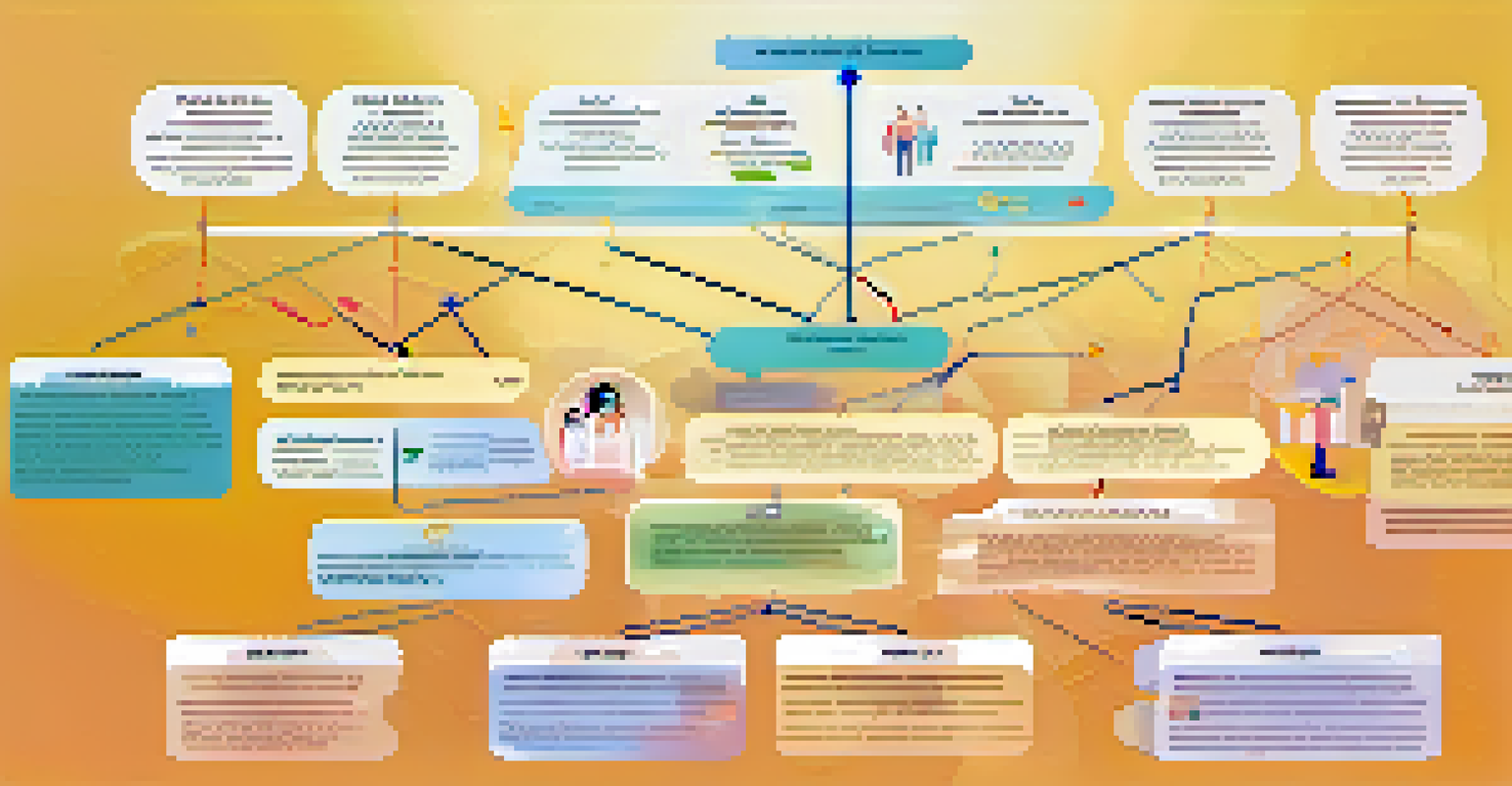The Role of Genetic Counseling in Familial Disease Management

What is Genetic Counseling and Its Importance?
Genetic counseling is a process that helps individuals understand their genetic health, especially when there's a family history of diseases. It provides a platform for discussing genetic risks, testing options, and potential outcomes. This is crucial for families as it empowers them with information to make informed health decisions.
Genetic counseling is the process of helping people understand and adapt to the medical, psychological, and familial implications of genetic contributions to disease.
Imagine trying to navigate a complex maze without a map—that’s often how individuals feel when dealing with genetic health issues. Genetic counselors act as guides through this maze, offering clarity on what genetic conditions may mean for you and your family. Their expertise can significantly reduce anxiety surrounding genetic risks.
The importance of genetic counseling lies not just in understanding risks, but also in preparing for potential outcomes. It can lead to early interventions, better health management, and sometimes, even preventive measures. In essence, it transforms uncertainty into informed choices.
How Genetic Counselors Assess Family Health History
A key role of genetic counselors is to gather detailed family health histories. This involves asking about diseases that run in families, their ages of onset, and how they’ve affected family members. This thorough assessment helps identify patterns that might indicate a hereditary condition.

Think of it like piecing together a family puzzle; each piece represents a different health aspect of relatives. By understanding these connections, counselors can paint a clearer picture of potential genetic risks. This process is vital in determining whether genetic testing might be beneficial.
Empowering Decisions Through Knowledge
Genetic counseling provides essential information about genetic risks, enabling families to make informed health choices.
Ultimately, this assessment serves as a foundation for personalized counseling. By recognizing hereditary patterns, genetic counselors can tailor their advice and recommendations, making the guidance more relevant and actionable for individuals and families.
The Process of Genetic Testing Explained
Genetic testing is often a critical step in genetic counseling, providing concrete information about an individual's genetic makeup. This process involves analyzing DNA from a sample, which could be blood or saliva, to identify any genetic mutations linked to specific diseases. Understanding the results can illuminate the risk of developing certain conditions.
The greatest gift you can give your family and the world is a healthy you.
Imagine genetic testing as a treasure hunt for health information; the goal is to uncover specific genetic markers that may indicate predisposition to diseases. Counselors help interpret these results, making the complex science behind genetics more understandable. It’s not just about finding out if you have a mutation; it’s about what that means for your health.
The outcomes of genetic testing can lead to various paths—monitoring, preventive care, or family planning options. This empowered knowledge allows families to make proactive decisions regarding their health management, which can be life-changing.
The Emotional Aspects of Genetic Counseling
Genetic counseling isn't just a scientific endeavor; it also encompasses emotional support. The prospect of genetic testing can evoke a range of feelings, from anxiety to hope. Counselors provide a safe space to discuss these emotions, helping individuals and families navigate their feelings about genetic risks.
Consider this: receiving unexpected genetic news can feel like standing at a crossroads, unsure of which path to take. Genetic counselors help individuals process their emotions and provide coping strategies, ensuring they don't feel alone during this journey. This emotional support is as critical as the information shared.
Emotional Support is Key
Counselors not only share genetic information but also offer emotional guidance, helping individuals navigate their feelings about potential risks.
Moreover, the counseling process promotes resilience by fostering a sense of control over one’s health. Knowing that support is available can alleviate some of the fears associated with genetic conditions, enabling families to face their challenges with greater confidence.
Genetic Counseling for Specific Familial Diseases
Certain familial diseases, such as breast cancer or Huntington's disease, often have well-established genetic links. Genetic counseling plays a vital role in assessing risks for these conditions, educating families on the implications of genetic findings. By focusing on specific diseases, counselors can provide targeted information and resources.
Take breast cancer, for example; women with BRCA1 or BRCA2 mutations have a significantly increased risk. Counselors guide families through understanding these risks and discussing preventive measures, such as enhanced screening or lifestyle changes. This tailored approach can lead to early detection and better outcomes.
Additionally, genetic counseling can help families make informed decisions about family planning. For conditions like cystic fibrosis or muscular dystrophy, understanding the genetic implications for offspring is critical. Counselors equip families with the knowledge necessary to explore their options, leading to more informed reproductive choices.
The Role of Genetic Counseling in Preventive Health Care
Genetic counseling is increasingly recognized as a cornerstone of preventive healthcare. By identifying individuals at risk for hereditary conditions, these counselors facilitate early interventions that can significantly improve health outcomes. This proactive approach shifts the focus from reactive treatment to prevention.
Imagine catching a disease before it fully develops; that’s the essence of preventive healthcare. Genetic counselors often collaborate with other healthcare providers to create comprehensive care plans that address identified risks. This teamwork ensures that individuals receive holistic support tailored to their unique genetic profiles.
Preventive Care Benefits
By identifying hereditary risks, genetic counseling fosters early interventions that can lead to better health outcomes.
Moreover, preventive measures may include lifestyle modifications, regular screenings, or even preventive surgeries in high-risk cases. By empowering individuals with knowledge, genetic counseling fosters a culture of proactive health management, ultimately contributing to a healthier future.
Navigating Insurance and Access to Genetic Counseling
Access to genetic counseling can sometimes be hindered by insurance coverage and costs. Many individuals are unsure whether their insurance will cover genetic testing or counseling sessions. Understanding these aspects is crucial for families seeking this valuable resource.
Think of it as navigating a maze of paperwork and policies. Genetic counselors often assist families by providing the necessary information to help them understand their insurance benefits. They can also guide individuals on how to advocate for coverage, ensuring that finances don’t stand in the way of critical health insights.

Ultimately, increasing access to genetic counseling is essential for empowering more families. As awareness grows about the benefits of genetic counseling, more advocacy efforts are being made to enhance coverage options, making this vital service available to a broader audience.